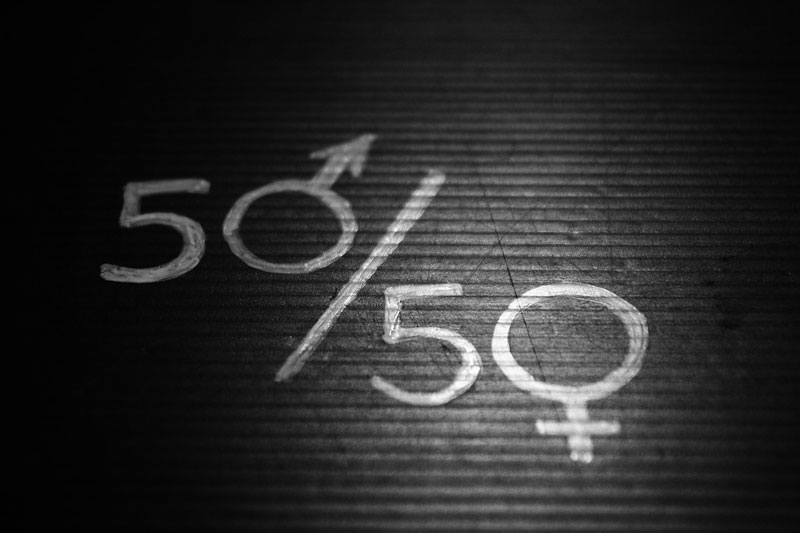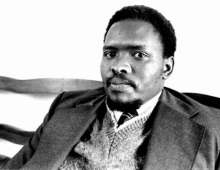Petunia Mpoza
The title is inspired by the United Nations’ 2020 International Women’s Day (8 March) theme “I am Generation Equality: RealiSing Women’s Rights”. The Generation Equality campaign which seeks to bring together people of every gender, age, ethnicity, religion and country, to drive actions that will create a gender-equal world.
This year marks the 20th anniversary of the United Nations Security Council Resolution (UNSCR) 1325 on Women, Peace and Security. It is also 25 years since the declaring of action at the Fourth World Conference on Women in Beijing, China.
To date, the Fourth World Conference on Women, has been the largest-ever coming together of gender activists and advocates for equality. The Declaration of Action, adopted by 189 governments outlined and committed them to strategic, bold action in 12 critical areas of concern, namely:
- Poverty,
- Education
- Training
- Health
- Violence and armed conflict,
- The Economy
- Power and decision-making
- Institutional mechanisms
- Human rights
- Media
- The Environment, and
- The girl child.
At the continental level, 2020 also marks the end of the African Women’s Decade 2010-2020 on Grassroots Approach to Gender Equality and Women’s Empowerment. The African Union Office of the Youth Envoy together with the African Leadership Institute launched the “Greater Inclusion of African Youth in Public Service and Governance, while, the African Union celebrates the 2020 International Women’s Day under the theme “I am generation equality: realizing women’s rights, where in which the African Union aims to scale up actions towards gender parity.”
Within South Africa it is imperative to contextualise our own struggles for gender equality. Here one cannot help but refer to the 9 August 1956 watershed Women’s March to Pretoria in protest against the extension of the dreaded dompass to women. It will also be remiss not mention the 1954 Women’s Charter, a pioneering Women’s Charter drafted by the founding members of the Federation of South African Women (FEDSAW).
These activists include (out of respect as I am a Generation of the 80’s, I will refer to them as abo Mama or abo Gogo) Sophia Williams-de Bruyn, Bertha Mashaba, Rahima Moosa, Florence Matomela, Helen Joseph, Florence Mkhize, Ray Alexander, Lilian Ngoyi, Sister Bernard Ncube, Rita Ndzanga, Goitsemang F. Baard, Maniben Sita and Dora Tamana. They were among a collective that fought for women’s rights.
As noted in the Charter, women of all walks of life, fought for overall human rights, addressing a number of issues amongst them, the question of wealth and poverty. The charter stated: “These are evils that need not exist. They exist because the society in which we live is divided into poor and rich, into non-European and European. They exist because there are privileges for the few, discrimination and harsh treatment for the many…We women have stood and will stand shoulder to shoulder with our menfolk in a common struggle against poverty, race and class discrimination and the evils of the colour bar.” The Charter, further pledged “to unite women in common action for the removal of all political, legal, economic and social disabilities.”
From the above, one cannot help but wonder how far South Africa has come in redressing any of the 12 Beijing critical areas of concern and the African Women’s Decade. In this regard, below is a summary from the World Economic Forum: Global Gender Gap Report 2020.

http://www3.weforum.org/docs/WEF_GGGR_2020.pdf
As a global player South Africa cannot ignore the global agreements that directly and indirectly impact on South Africa and its people. Equally, as signatories and as a country holding positions in these global structures, it is important that we reflect on how much progress we have made as a country. It is well known that Phumzile Mlambo-Ngcuka is an executive director of UN Women and serves as the AU Chair.
It is therefore, important to highlight that over time and generation to generation, there could not be total emancipation and redress of any form without the full participation of those who continue to remain disempowered. The oppressed, silenced, excluded or reduced to be the “other” as observed in sectors of society made up of Persons with Disabilities, LGBTQIA+ Community and Youth.
All these milestones provide an opportunity in to take stock of women’s achievements, and reflect on how action can be accelerated to achieve fully the goals of gender equality, women’s empowerment and equal opportunities for Persons with Disabilities, LGBTQIA+ Community and Youth in our homes, in our Communities, our Country, the Continent and the World.
As rightly highlighted by Minister in the Presidency Mme Maite Nkoana-Mashabane’s address on National Women’s Day and re-emphasised by our ANC Youth League President Bab’ Matamela in his speech commemorating Women’s day.
“The generation of 1956 faced different challenges under the apartheid system, the current generation is confronted with similar challenges under different circumstances. These include patriarchy, poverty, gender-based violence and more. Despite progress made in achieving women empowerment in the last 26 years, challenges remain”.
In his speech he went to highlight 4 key actions:
The first action, is to expand the access of women to economic opportunity. The second action, is to support women who operate small or micro businesses, including in the informal sector. The third action, is to speed up the process of giving women access to productive assets such as land. The fourth action, is to ensure that women are safe from gender-based violence in the workplace.
However, there is a problem with the President’s key actions. It unconsciously accepts that these actions would automatically include Persons with Disabilities, LGBTQIA+ Community and Youth cannot be assumed. We have to embrace holistic and inclusive long term solutions to systematic inequality, abuse, discrimination, isolation and exclusion.
Despite some progress, ‘generationally speaking’, real change has been painfully slow for the majority of women and girls in the world, not to mention abuse and femicide. There has been little to no measurable transformation in the lives of, and inclusion of Persons with Disabilities, LGBTQIA+ Community and Youth – whether in the political, socio-economic, education and health spheres.
Today, not a single country can claim to have achieved gender equality and all round inclusion of Persons with Disabilities, LGBTQIA+ Community and Youth.
Consequently, women remain undervalued, they continue to work more and earn less, at the same time Persons with Disabilities, the LGBTQIA+ Community and Youth continue to have fewer choices, while experiencing multiple forms of discrimination, isolation, violence, and abuse in homes and in public spaces.
For generations, struggles waged by women have not exclusively been for women by women but for society as a whole. And one cannot mention equality without thinking gender, and cannot imagine inclusion in the absence of Persons with Disabilities, LGBTQIA+ Community, Youth and Women. When looking around our own families, community and our history – made up of the generation of yesteryear (male and female, young and old, from different races, ethnicity, religion, ideology, sexual orientation) and then google back to 2020, as the beneficiaries we ought to see that there is greater inclusion, in our life time and we leave no one behind.
We, are that Generation. Equality for Greater Inclusion. After all it is a collective responsibility!










